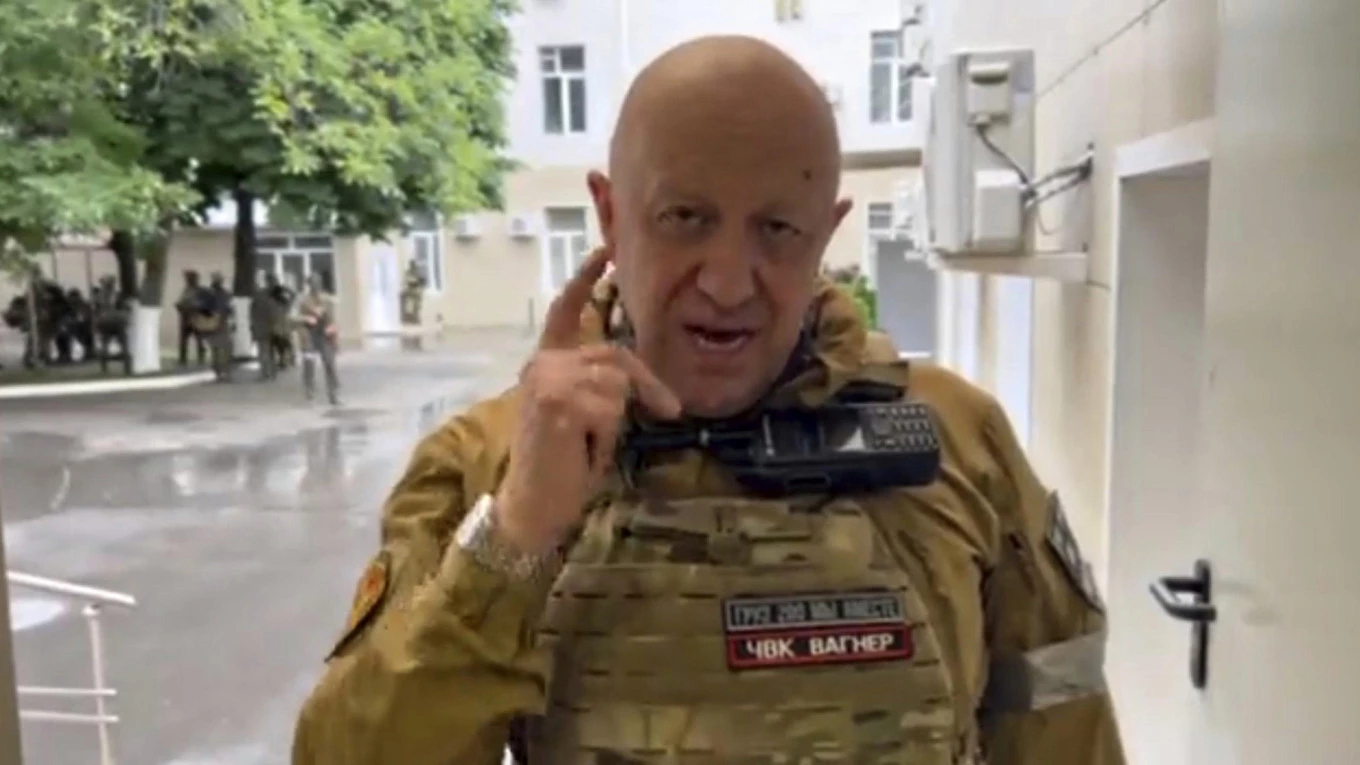Wagner mercenary chief Yevgeny Prigozhin was formally confirmed dead on Sunday following genetic analysis, investigators said, as anger and questions over what caused his plane to crash earlier in the week continued to mount.
Speculation that the Kremlin may have been involved in the crash has been rife, with the incident coming exactly two months after Wagner staged a mutiny against Moscow's military leadership.
"Molecular-genetic examinations have been completed as part of the investigation into the plane crash in the Tver region," Svetlana Petrenko, a spokeswoman from Russia's Investigative Committee said.
"According to their results, the identities of all 10 victims were established, they correspond to the list stated in the flight list," she added.
Among the nine other people listed onboard the Embraer private jet that crashed on Wednesday was Dmitry Utkin, a shadowy figure who managed Wagner's operations and allegedly served in Russian military intelligence.
- Makeshift memorials -
Russian officials opened an investigation into air traffic violations after the crash but have otherwise not disclosed details about its possible cause.
Kremlin spokesman Dmitry Peskov described the incident as "tragic" to reporters on Friday, calling rumours of possible foul play an "absolute lie".
His comments came as the Kremlin appeared to rein in groups like Wagner, with a presidential decree signed Friday stipulating that paramilitary fighters will have to swear an oath to the Russian flag.
In an address Thursday, President Vladimir Putin said he had known Prigozhin -- once a loyal ally -- since the early 1990s, describing him as a man who made mistakes but "achieved results".
However, his comments did little to stem mounting questions and anger over the mercenary's chief's death, with makeshift shrines to Prigozhin springing up across Russian cities.
Video taken by AFP showed a makeshift memorial on Moscow's Varvarka street, just outside the Kremlin, as men stood solemnly before a line of red roses and pictures of the mercenary chief.
"He was killed," said one man wearing a shirt marked with the letter "Z" -- a symbol representing Russia's offensive in Ukraine.
"He was killed by his enemies. We won't say who. The investigation will reveal. But we hope that revenge will catch up with those who committed this crime," he added.
Another man outside the memorial told AFP that Prigozhin had "plenty of enemies", as he speculated over who was responsible.
"Prigozhin had a lot of enemies in our country, abroad, in Ukraine and Africa," said Renat, 53.
Wagner forces, which Moscow used to prosecute some of the Ukraine conflict's bloodiest battles, also maintained a significant military presence in Africa.
Similar memorials were spotted across the country, in cities like Perm and Saint Petersburg -- Russia's former imperial capital and Prigozhin's birthplace.
- Drone strikes -
Hostilities between Moscow and Kyiv continued to rage on Sunday, with Russia announcing its border regions were hit by drones again and Ukraine reporting an overnight strike.
Russia and the Moscow-annexed Crimean peninsula have been hit by almost daily attacks in the past month, since Kyiv warned in July it aimed to "return" the conflict to Russian territory.
Moscow's defence ministry announced two Ukrainian drones flying over border regions on Sunday had been repelled, after the governor of Belgorod region said a drone carrying explosives had killed a man the day before.
The governor of Russia's Kursk region, which lies next to the Ukrainian border, said a drone had crashed into an apartment building in Kursk city overnight, blowing out windows on several floors.
"There were no fires, none of the residents were injured," governor Roman Starovoit said on social media, sharing an image of what appeared to be a charred mark on a tower block.
Ukraine was also targeted on Sunday, as its air force announced it shot down four cruise missiles in the country's north and central regions during another Russian air raid overnight.
The head of Kyiv's regional military administration, Ruslan Kravchenko, said falling missile fragments had injured two people and damaged 10 homes.
- 'Juice' -
Ukraine meanwhile mourned the loss of three pilots killed in a mid-air collision on Friday, as leading figures paid tribute to well-known fighter ace "Juice" killed in the crash.
The crash involving two combat training aircraft marks a painful blow for Kyiv, which has been looking to secure advanced F-16 jets to modernise its Soviet-era air force.
The 40th Tactical Aviation Brigade named the three dead as Major Vyacheslav Minka, Major Sergiy Prokazin and Captain Andrii Pilshchykov -- better known by his call-sign "Juice".
"Each of them was involved in air operations for the defence of Ukraine since the start of Russia's full-scale aggression, including tactical tasks in the east and in Zaporizhzhia region," it said.
President Volodymyr Zelensky has vowed an investigation into what happened.


